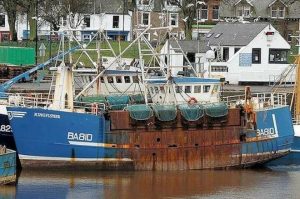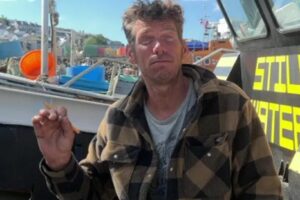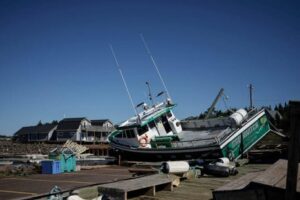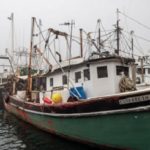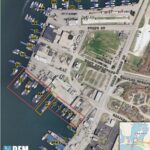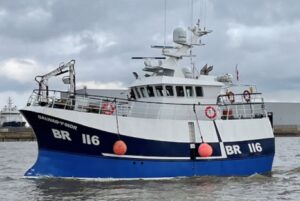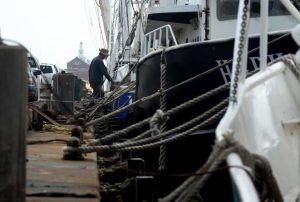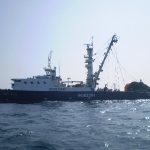Daily Archives: February 27, 2020
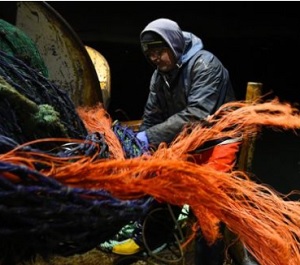
Battle lines being drawn over fishing rights
Fish have been served up among the main bones of contention between the UK government and the European Union. The negotiating mandate published on Thursday at Westminster is a long way from the vision for a future relationship for managing wild fish stocks in the European Commission’s proposals. That comes as no surprise to those who have seen the pre-negotiation posturing from the rhetoric of the 2016 Brexit campaign, to the priorities set out by Brussels along with the Withdrawal Agreement. >click to read< 23:13

Tignish boys build snow boat sculpture to honour late great-grandfather
The boat mirrors the real lobster fishing boat captained by their great-grandfather Richard Hogan, who died in June 2018. Like its real-life counterpart, the snow sculpture also bears the name Lady Erica — named after the boys’ mother, Erica Perry. Perry says the boys, Bailey, Chase and Blaze, created the sculpture after school Tuesday, spending all afternoon and evening getting it done. How beautiful she is, boys! May his light shine upon you. >click to read< 19:08
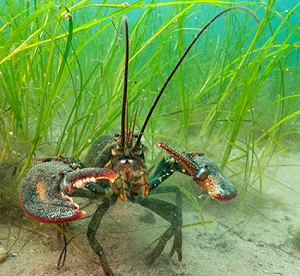
Meet the super-plant from Nova Scotia’s shorelines: eelgrass
Eelgrass protects shorelines against storms, cycles nutrients and provides juvenile fish and lobster with places to hide and grow. If that’s not enough to convince people that eelgrass is a super plant, it is also many times more efficient at capturing and storing carbon than terrestrial forests.,,”If you lose eelgrass there’s nothing to replace it,” says Heike Lotze, a researcher and professor at Dalhousie University,, While protections for eelgrass can be put in place, Lotze points to a lack of understanding and recognition that what happens on land directly affects the ocean. Eelgrass is extremely sensitive to runoff (water carrying sediments and or chemicals) from land due to human activities such as development and agriculture (wastewater treatment plants). >click to read< 17:56

DFO: Season-long fishing closures possible under new North Atlantic right whale protections
On Thursday, the Department of Fisheries and Oceans announced more protections in an effort to prevent future entanglements. “These new measures build on that work, and are informed by the latest research and technology,” said Federal Fisheries Minister Bernadette Jordan in a release.,, This year, from April to November, Fisheries and Oceans Canada will be closing fishing in areas of the gulf where whales are gathering in large numbers. If whales are detected in an area of the gulf more than once during a 15-day period, that fishing zone will be closed for fishing until the end of the season on Nov.15. Previously, the zone would be re-opened after 15 days. >click to read< 15:58
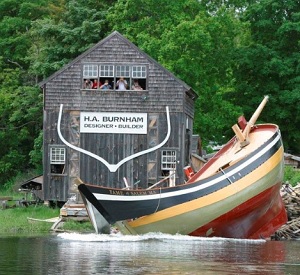
Traditional boat builders join forces for interactive series
In towns like Gloucester, Salem and Newburyport, boats were traditionally built near the water, where locals could watch as their hulls took shape. It is a practice that Harold Burnham revived when he started building wooden boats in Essex in the early 1990s, so members of the community could follow each ship through the slow-developing drama of its creation. He has built five ships near the water, including the 65-foot Thomas E. Lannon, which was based on a traditional Gloucester fishing schooner and was launched in 1997. This Saturday, Essex Heritage will launch a series of talks and demonstrations on wooden boat building, rather than a physical ship, but the aim is the same as Burnham’s. 9 photos, >click to read< 15:02
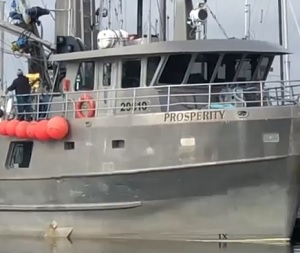
Vancouver Island: Controversy grows as herring fishery approaches
Anticipation is growing in French Creek’s harbour as herring boats began to fill it Wednesday ahead of the fishery opening. The opening could be any day. Fisheries and Oceans test boats have already recorded herring returning to spawn. “Could be any minute now, you know Mother Nature is temperamental,” said Captain of the Pender Isle Jason Roberts. Video, >click tp read< 12:32

Managing A Lucrative Resource In The Face Of Climate Change
Conservationists and commercial fishing industry leaders came together on the need to restructure the Magnuson-Stevens Fishery Conservation and Management Act to adequately consider climate impacts during a panel discussion in Honolulu. But that was about it for the common ground they found during the last stop on U.S. Rep. Jared Huffman’s nationwide “listening tour” on reforming the MSA. The panelists, which also included state and federal officials, had diverging views on the effectiveness of marine national monuments like Papahanaumokuakea and whether the eight regional councils that the law set up to manage fishery resources nationally should have designated seats to ensure representation from environmental, indigenous and scientific interests as well as the commercial fishing industry. >click to read< 10:38
What ever happened to HR-200? I have no interest in these people reauthorizing anything.
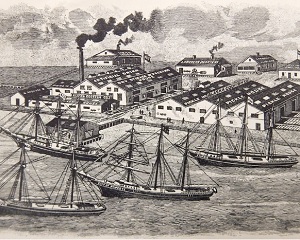
‘Codfish Fever’ – Hungry Gold Miners Craved the Salted Fish, so a Ragtag Fleet Set Off for Alaska
Codfish fever got its start in the years following the discovery of gold in central California in 1848, when San Francisco grew quickly from a sleepy hamlet into a thriving commercial center. Many of those who migrated to California during the Gold Rush were from western Europe. For them, salted cod was a dietary staple.,, Initially, East Coast merchants supplied Californians with salted Atlantic cod shipped via the Isthmus of Panama or Cape Horn. But this was a long, expensive journey for the fish, and California entrepreneurs recognized an opportunity to replace Atlantic cod with Pacific cod. It was one Captain Mathew Turner, an opportunistic merchant, who pioneered the U.S. Pacific cod fishery. >click to read< 08:43
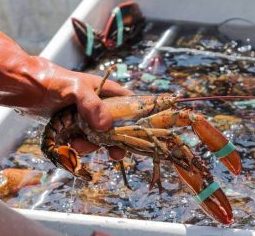
Coronavirus: Flights of live lobster to China plummeted in late January. When will they resume?
“It’ll probably be three or four months at least,” Keith Colwell told reporters after announcing $2.5 million in funding for a lobster quality research and innovation centre at Université Sainte-Anne in Church Point, N.S. “It’s a concern for us. It’s a serious concern, not just with lobster, but everything we export there.” Initially, Colwell called it a blip.,, “I think this is a big deal, particularly the way they’ve dealt with it, like they’ve closed stuff down,” said Chandra Gavin, a commercial fisherman from the Gulf of St. Lawrence. “We went through SARS and I don’t think any of that, none of this happened for that.” Video, >click to read< 07:47
Lobster Quality Research and Innovation Centre To Help Fishery – >click to read<

































